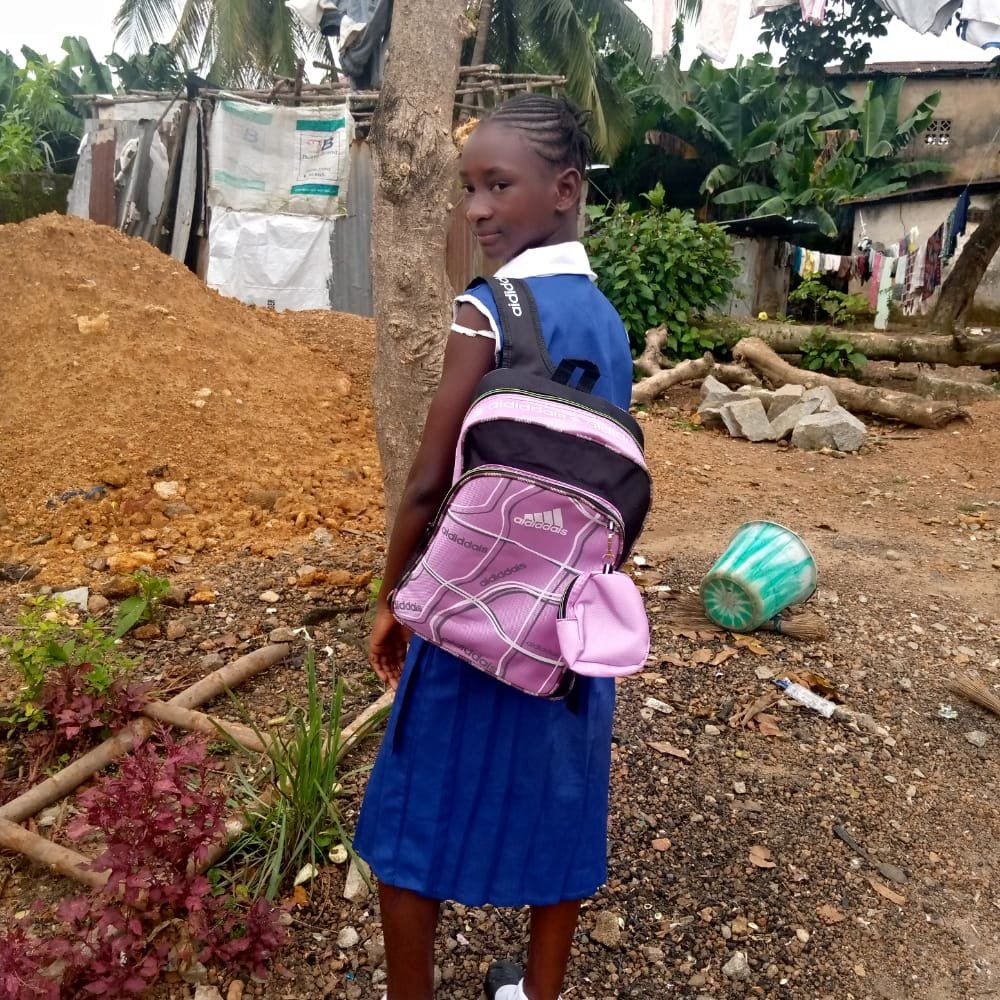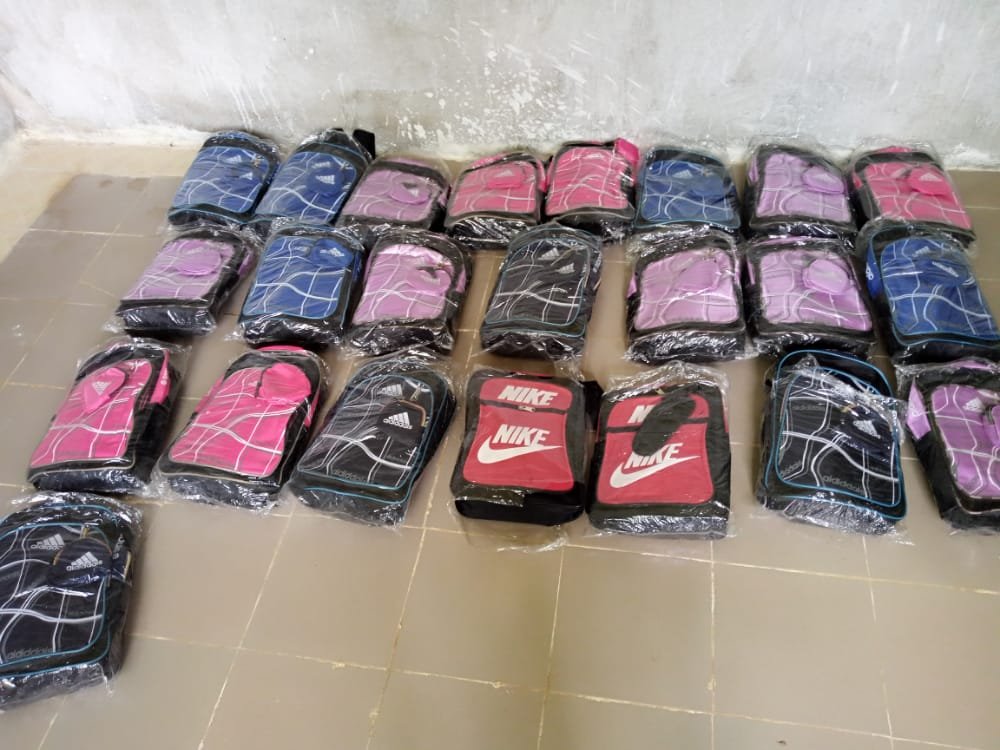School Supplies for Children
First Project
In 2021, Calvin lived in Tikonko for 6 months. During his stay, he met numerous gifted and intelligent children who were not attending school. They had discontinued their education due to a lack of support and finances. Annual school fees only add up to ~$7 but these kids were never given the chance to grow.
At the time, Calvin could not help them because the school year was halfway over and late registration had passed. It was completely heartbreaking to watch some of the brightest and youngest minds of Tikonko simply walking up and down the streets every day with nothing to do. Calvin ensured those children would not be forgotten again as long as he was involved in the community.
Certificate of Registration: Now We Can Start Operations!
In December of 2021, Growing the Grassroots (GTGR) received its Certificate of Registration from the state of Utah. With this certificate, we were able to begin operating in Sierra Leone. With minimal funding, the board of directors of GTGR decided to pursue their first project: helping families send their children back to school that otherwise would not have been able to.
Working With a Small Staff
Since finances only came from direct friends and families of the GTGR board members, money was tight. The reason this project was pursued first was that Mohamed Sallieu Bah, the in-country director, was the only in-country staff member at the time. The first project could not entail too many moving parts, as the manpower in-country was lacking. The ultimate goal was to maximize every single dollar donated and make as large of an impact on the community as possible.
Mohamed thanking the donors and explaining how we are sending these kids back to school.
How Cyclical Poverty Limits Education
There wasn’t a better way to jump into the community than pursuing this project first. Sierra Leone is a struggling country, but its citizens value education and view it as the best way to change their personal situations and find a better life. It was of the utmost importance to focus all energy on this project to save as many kids from cyclical poverty as possible.
Average Children per Household
According to the United Nations, each family has an average of 5.2 children. However, many families don’t report births and deaths to the NRA, which is the Sierra Leone equivalent of reporting to the census in the United States. It is believed the number of children per household is higher than that.
Average Income per Sierra Leonean
Additionally, a Sierra Leonean only makes an average of $1.25 per day (which is believed to be accurate). It is highly difficult to save money for anything besides basic necessities when income is that low; survival precedes education.
Dropout Rates and Education for Girls
According to the World Bank, over 75% of Sierra Leone children drop out before primary school has finished. That is the equivalent of a 5th-grade education in the United States. Girls have an even higher dropout rate due to many factors, including a lack of inherent value for girls to be educated, and high pregnancy rates. 20 of the 29 children sent back to school during this project were girls in order to start changing that ideology.
Finding Families in Need of Help
In order to find the families that truly needed help, Mohamed, the in-country director for GTGR, inquired about this information from Reverend Bangali, of the New Apostolic Church of Tikonko. Reverend Bangali knew the community of Tikonko very well and knew who truly needed help as he was an elder and leader of the community. Off the top of his head, Reverend Bangali seamlessly gave Mohamed a list of families. Mohamed took this list and added it to the list Calvin had personally made during his time in Tikonko for a grand total of 29 children who were to be helped.
A girl wearing the new backpack given to her by Growing the Grassroots.
After raising money through crowdsourcing, time was of the essence because these children had already missed the first 3 weeks of school. So now the question was, “How does $435 USD send 29 kids back to school?” The only viable solution was to provide the necessities. Mohamed promptly went to the markets in Bo to purchase school uniforms, backpacks, shoes, socks, underwear, pens, pencils, water bottles, and notebooks for every child. In total each student received a donation worth $15. This included the $7 school fees discussed earlier.
New backpacks that were purchased for the children.
Over the next several days, Mohamed scrambled around the Bo District and personally visited each family on that list. He interviewed each family to gain a deeper understanding of their struggles. Hearing their struggles puts into perspective how much they truly needed help. After listening to their stories, he handed over the school supplies, explaining the importance of each item to not just the children, but the parents. The parents had a major responsibility to encourage their children to attend school and not let them fall behind again.
Mohamed giving school supplies to a family in Tikonko.
Importance of Monitoring Projects
Now, this was an important learning opportunity, because the GTGR board had to learn this after visiting Sierra Leone and witnessing all the past non-profit projects which had come and gone without making a long-term change in the community. In order for any project to be successful, a monitoring program must be implemented to ensure the donations are being used properly and the parents haven’t sold the children’s school supplies for money. Starting in January, Mohamed began routine visits checking on the families and talking to the children’s teachers. Growing the Grassroots prides itself on not being a “band-aid-solution” organization. In other words, sustainable solutions are the only course of development that will have a lasting effect on communities. This is why Mohamed made these visits. Ensuring that these children are putting forth effort in class is just as important, if not more, than giving them the school supplies in the first place.
Meet Moses Alie Sesay
Throughout these routine visits, Mohamed began to notice some of the children we sponsored doing exceptionally well in their classes. One child in specific, Moses Alie Sesay, stood out amongst the rest of his peers. He is the definition of a “diamond in the rough”. Moses, previously not attending school, has gone on to receive a full-ride scholarship to a private school in Bo, received awards for his academia, and has been interviewed on the radio. In June of 2022, Moses received an award from the Bo City Government labeling him in the top 3 most influential children in his country. Read his full story here.
Moses Alie Sesay wearing a Growing the Grassroots shirt.



